
Undocumented Immigrants Avoid Medical Care
New York, N.Y. – In recent statements, Los Angeles Mayor Karen Bass highlighted a growing crisis in California’s healthcare system: undocumented immigrants are avoiding hospitals due to fears of encountering Immigration and Customs Enforcement (ICE) agents.
This fear stems from heightened immigration enforcement policies and a lack of clear protections for individuals seeking medical care. Across the U.S., hospitals have reported a decline in visits from undocumented immigrants, even for critical care, as concerns about deportation overshadow health needs.
Bass emphasized that this trend exacerbates public health risks, leaving vulnerable populations untreated and increasing the likelihood of untreated conditions spreading in communities.
The issue is particularly acute in states like California, where large immigrant populations reside. According to a 2024 report from the UCLA Center for Health Policy Research, approximately 20% of undocumented immigrants in Los Angeles County avoided medical care in the past year due to immigration-related fears.
This avoidance has led to delayed diagnoses, worsening chronic conditions, and increased emergency room visits for preventable issues. Bass, a former community organizer and U.S. Congress member, called for urgent policy changes to ensure safe access to healthcare for all residents, regardless of immigration status.
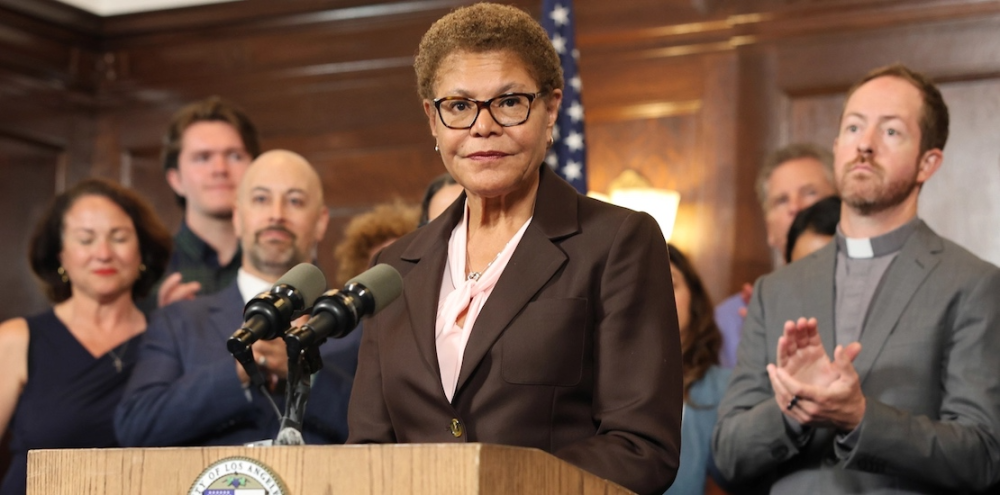
Historical Context of Immigration and Healthcare
The intersection of immigration policy and healthcare access has long been contentious. Since the 1996 Illegal Immigration Reform and Immigrant Responsibility Act, federal policies have tightened immigration enforcement, including in public spaces like hospitals.
While Health Insurance Portability and Accountability Act (HIPAA) regulations protect patient privacy, they do not explicitly prevent ICE from operating in medical facilities.
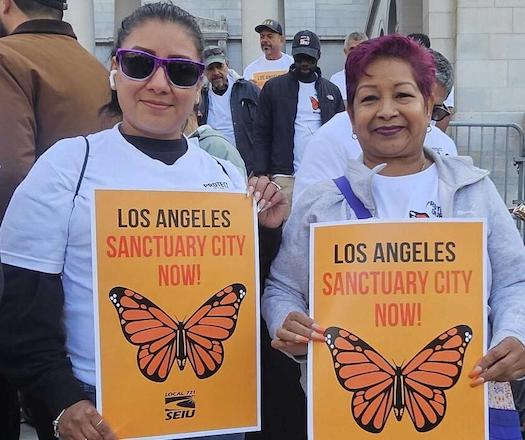
This gap has created a chilling effect, with many undocumented immigrants perceiving hospitals as potential deportation traps.
In 2011, the Department of Homeland Security issued guidance designating hospitals as “sensitive locations” where enforcement actions should be limited.
However, high-profile cases of ICE detaining individuals at or near medical facilities have eroded trust.
For example, in 2017, a Texas hospital reported an incident where an undocumented patient was detained shortly after discharge, sparking widespread outrage.
Such incidents, amplified by social media and news outlets, have deepened fears among immigrant communities.
Bass’s comments reflect a broader push by local leaders to address these concerns. In Los Angeles, city officials have worked to designate sanctuary city policies, limiting cooperation with federal immigration authorities.
Yet, these measures often fall short of reassuring undocumented immigrants, who remain wary of federal overreach. The Affordable Care Act (ACA) excludes undocumented immigrants from coverage, further limiting their access to affordable care and reinforcing reliance on emergency services, which are often costlier for both patients and healthcare systems.
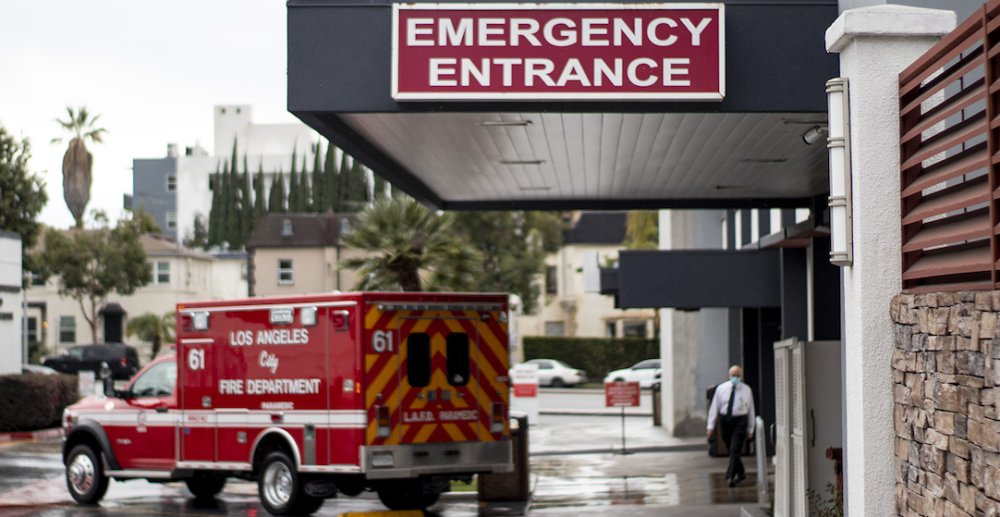
Public Health Implications
The avoidance of healthcare by undocumented immigrants has significant public health consequences. Untreated conditions, such as diabetes or infectious diseases, can worsen over time, leading to higher mortality rates and increased healthcare costs. A 2023 study by the Centers for Disease Control and Prevention (CDC) noted that delays in seeking care for communicable diseases, such as tuberculosis, pose risks to broader communities.
In Los Angeles, where Bass has advocated for expanded healthcare access, hospitals have reported a rise in late-stage diagnoses among undocumented patients.
Moreover, the fear of ICE detentions exacerbates mental health challenges. Undocumented immigrants, already facing stressors like economic instability and family separation, report high levels of anxiety and depression related to healthcare access.
Community health clinics, often seen as safer alternatives to hospitals, are overwhelmed, with wait times stretching weeks or months. Bass has called for increased funding for these clinics, arguing that they serve as critical lifelines for underserved populations.
The COVID-19 pandemic underscored these issues, as undocumented immigrants were less likely to seek testing or treatment due to fears of immigration enforcement. This reluctance contributed to higher infection rates in immigrant-heavy neighborhoods, according to the Los Angeles County Department of Public Health.
Bass, who took office in December 2022, has prioritized addressing these disparities, advocating for policies that decouple healthcare access from immigration status.
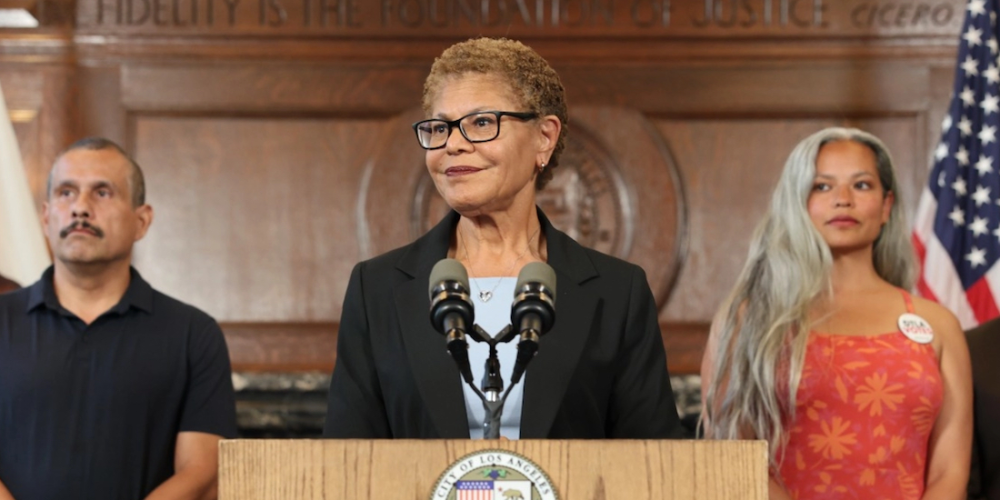
Policy Proposals and Challenges
Bass has proposed several measures to address the crisis, including expanding sanctuary city protections to explicitly include medical facilities and increasing outreach to inform immigrants of their rights. She has also called for state and federal partnerships to fund community health programs tailored to undocumented populations.
In 2024, California launched a pilot program offering limited Medi-Cal coverage to undocumented residents, a step Bass praised but noted was insufficient without broader federal support.
However, these proposals face significant hurdles. Federal immigration policies under the current U.S. administration have prioritized enforcement, complicating local efforts to create safe spaces for healthcare.
Budget constraints also limit the ability of cities like Los Angeles to expand healthcare services without federal aid. Additionally, political divisions over immigration policy create resistance to reforms that would protect undocumented immigrants seeking medical care.
Advocacy groups, such as the Coalition for Humane Immigrant Rights, argue that ICE should be barred from operating in or near healthcare facilities entirely. They point to models in countries like Canada, where immigration enforcement is explicitly separated from healthcare access, as potential frameworks for the U.S. to adopt.
Yet, opposition from conservative lawmakers, who argue that such measures undermine immigration enforcement, remains a significant barrier.
Community Responses and Advocacy
Grassroots organizations have stepped in to fill gaps left by policy inaction. In Los Angeles, community health workers, or promotoras, have been instrumental in connecting undocumented immigrants with safe healthcare options.

These workers provide education on patient rights and navigate complex healthcare systems on behalf of vulnerable populations. Bass has praised these efforts, noting that community trust is essential to overcoming fears of ICE.
Faith-based organizations and nonprofits have also launched initiatives to provide free or low-cost medical care.
For example, the Los Angeles Free Clinic has expanded its services to include mobile health units that serve immigrant neighborhoods, reducing the need for hospital visits. These efforts, while impactful, are not scalable without significant funding and policy support.
Bass has urged community members to advocate for change, emphasizing the need for collective action. “Healthcare is a human right, not a privilege tied to immigration status,” she said in a July 2025 speech. Her call to action has resonated with local activists, who are pushing for greater transparency from hospitals about their interactions with ICE.
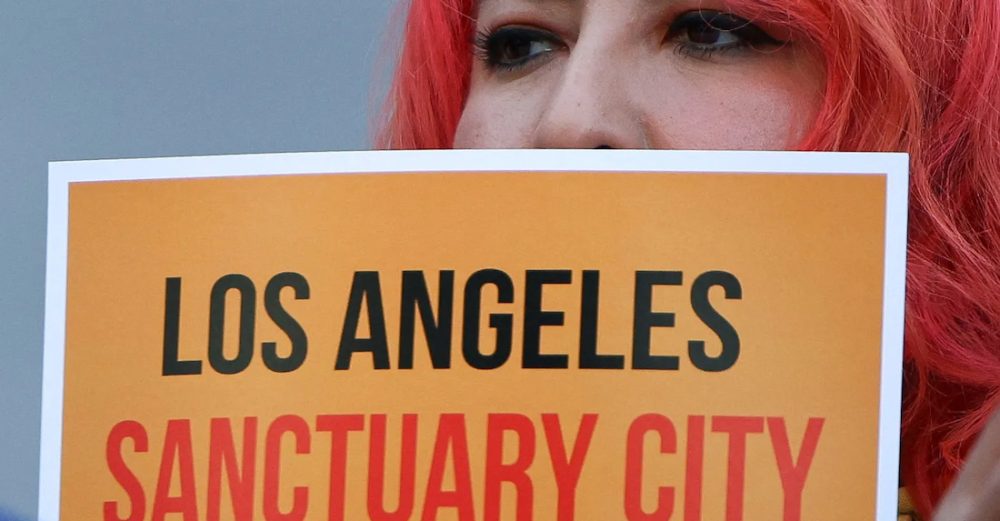
Summary for Audio Recording
Los Angeles Mayor Karen Bass has raised alarms about undocumented immigrants avoiding hospitals due to fears of ICE detentions. This trend, driven by strict immigration policies, leads to untreated conditions and public health risks. Bass advocates for sanctuary protections and increased funding for community clinics. Despite local efforts, federal enforcement and budget constraints pose challenges. Community organizations are stepping in, but broader policy changes are needed to ensure safe healthcare access.